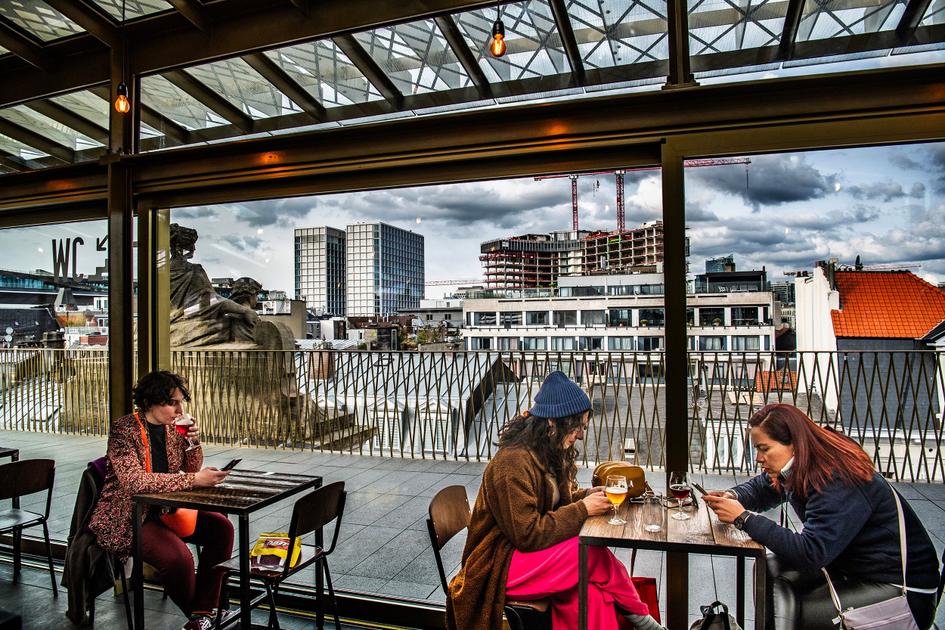It will not be possible to achieve global biodiversity targets with nature policy alone. This is only possible if there is a combination of a strong policy focus on restoring nature as well as on mitigating climate and reforming food and energy systems. Moreover, the efforts and innovative strength of social actors (such as cities, regions, NGOs, and corporations) are necessary to reverse the ongoing trend of biodiversity loss. This urgency is felt by many parties around the world. This is the conclusion of PBL in a study exploring positive pathways to nature.
Extensive policy measures are needed
Promoting the restoration of nature and biodiversity requires, first and foremost, the deployment of large-scale nature protection and restoration measures. In addition, a policy of change in production and consumption patterns is also necessary, in order to address the indirect causes of the loss of nature. Think about reducing meat and dairy consumption, reducing food waste, and making agricultural production more sustainable. Through these measures, which also contribute to the Paris goals, a great deal of synergy can be achieved between nature and climate policy.
A strong active community for nature
All over the world there are more and more upward initiatives to restore nature: society itself is trying to bring about changes. The creativity and creative power that exists in society provides an important opportunity for governments to shape the transition to an inclusive society for nature. Governments can support initiatives that bring about this change. However, there are barriers to scaling up these bottom-up efforts, ranging from a lack of recognition to a lack of legal and financial resources.
A comprehensive rural approach is critical
In rural areas, nature protection, biodiversity, food production, forestry and other demands related to the use of space come together. A holistic landscape approach that links different claims to space together with targeted spatial planning offers the potential to transcend the constraints of sectoral policy, which is often focused on a single task.
String perspective required
In addition to nature protection and nature restoration, economic changes are also required to achieve biodiversity goals. This calls for innovations and changes in the consumption, processing and production side of national and international food, energy and product chains. Examples include the production of non-animal sources of protein, sustainable energy sources and the circular use of materials. There is a need for international agreements on corporate accountability and taking the value of nature into account in business operations. National governments will have to guide and stimulate innovations with appropriate fiscal policies. In addition to stimulating and supporting innovations, it is also necessary to phase out undesirable practices, for example through pricing and standards.
Embrace cities as critical places for positive change for nature
Across the world there are a growing number of initiatives using nature to make cities healthier, more vibrant and more attractive. Some of these initiatives contribute directly to the conservation and restoration of biodiversity within the city limits, while others contribute indirectly. To increase cities’ contributions to the positive development of nature, fundamental changes are needed in infrastructure development, such as green areas and water systems. There is no plan for this. The task of urban policy makers will be to make the nature-inclusive development of urban infrastructure shared, for example through regulations and financing, and to provide space for social initiatives.
The PBL report exploring positive pathways to nature has been written in the run-up to the Fifteenth Conference of the Parties to the United Nations Convention on Biological Diversity (CBD) to be held in December 2022 in Montreal (Canada), under the chairmanship of China. This conference comes at a time when the links between climate change and biodiversity loss are becoming increasingly clear and coherent solutions are needed to address both issues.

“Total coffee specialist. Hardcore reader. Incurable music scholar. Web guru. Freelance troublemaker. Problem solver. Travel trailblazer.”







More Stories
Express your opinion about the design of the public space
The World Health Organization criticizes unnecessary antibiotic treatments during the Corona crisis
Toward a sustainable future: space exploration as a driver of terrestrial sustainability